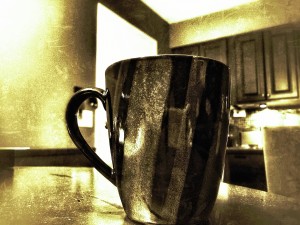When you’re responsible for assignments, taking care of family members, working, and juggling other major responsibilities, energy is not easy to come by. For many people, coffee is the go-to energy source when we feel depleted or when there’s a long night ahead of us.

Coffee has its benefits, but it also has its downsides, as outlined by two World Campus students recently. Here are their thoughts, but we want to hear yours, too. Comment below with your take on coffee.
The Pros
Letters, Arts, and Sciences student Jeff Bauer outlines some of the benefits, based on research and his own experience:
The caffeine in coffee may be responsible for improved short-term memory, increasing the ability to learn, and even treating ADHD.
Coffee itself (not the caffeine, which you can also get in soda/pop or tea) may also be responsible for a reduced risk of Type II Diabetes in avid drinkers.
Coffee provides a rich atmosphere for socialization.
The Cons
On the flip side, coffee has been linked to the following, points out Sebhia Dibra, a Psychology student:
A study published in the Mayo Clinic Proceedings followed people for two decades. The study found that people under the age of 55 who drank four or more cups of coffee a day were at risk for premature death, cardio-respiratory problems, and an increase in blood pressure.
Coffee beans are sprayed with tons of pesticides (so you should always buy organic)
Check out their full articles. Sebhia’s is chock full of alternative ways to find energy for those of us who turn down coffee. Some of her favorites include homemade health shakes, wheat grass, matcha tea, and flax seeds.
- Coffee – Stimulating Studies and Socialization (Jeff Bauer)
- How To Stay Alert and Energized…Without Coffee (Sebhia Dibra)
What do you think?
Share your comments below. Is coffee the end-all, be-all for a boost of energy? Or should we be looking elsewhere for that extra nudge to get us through the day?



